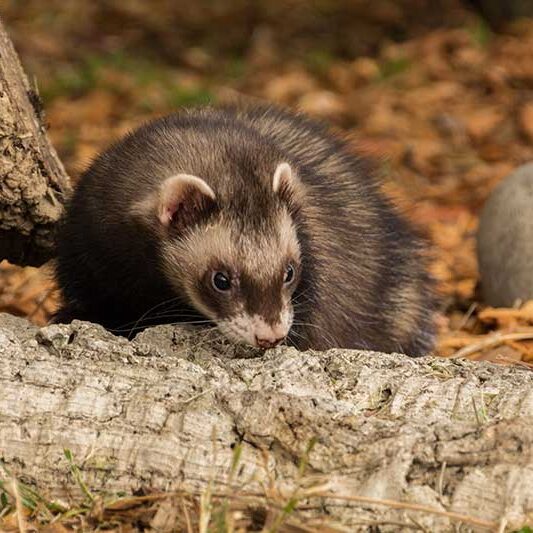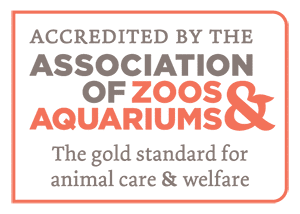Animals
Domestic Ferret

This animal is not on exhibit in the habitats.
It is one of our Animal Ambassadors and is used in public and school programs.
Latin Name
Mustela putorius furo
Ferret History at CuriOdyssey
Two ferrets were part of a medical research study. They were transferred to CuriOdyssey in September 2021 after the study was complete.
Fun Facts about ferrets
The domestic ferret is the domestic version of the European polecat. Research has shown that ferrets were bred in captivity and kept as companion animals for many years.
They were also used for rodent control and rabbit hunting. Ferrets were first depicted in Egyptian artwork dating back to 1400-1200 BCE. Augustus Caesar sent ferrets to the Balearic Islands to control the “plague of rabbits” in 6 BCE.
The ferret’s usefulness in rabbit hunting (ferreting) was spread throughout Europe by the Romans, who used ferreting as a way to keep their infantry busy and well fed.
What do ferrets eat?
At CuriOdyssey, we serve our ferrets cat kibble, meat and insects. Wild European polecats eat small mammals, rabbits, birds, invertebrates, lizards, frogs, and a small amount of plant matter.
How long do ferrets live?
Domestic ferrets live 5-7 years, while wild European ferrets live 4-5 years.
Where do ferrets live?
Domestic ferrets are not found in the wild. Wild European polecats are found in forests, mountains, farmlands, semi-desert, steppe, and tundra. They range from Europe (not Ireland or Northern Scandinavia), Western Asia, and North Africa.
Are Domestic Ferrets endangered?
No special animal conservation status. However, the domestic ferret’s close relative, the black-footed ferret, is very endangered. The black-footed ferret is native to the central United States. It has become an endangered species because cities and ranches have taken over the range of its main prey, the prairie dog.
Domestic ferrets are illegal to have as pets in California because if they escape from captivity and survive as feral animals they would compete with native wildlife for food and shelter.
SPONSOR AN ANIMAL
Help provide for the care and feeding of our wildlife guests by sponsoring an animal of your choice for a year.
Join the CuriOdyssey Community
LOCATION
1651 Coyote Point Drive
San Mateo, CA 94401
Ohlone Land Acknowledgement
650-342-7755
info@curiodyssey.org
CuriOdyssey is a 501(c)(3) non-profit, Tax ID 94-1262434

